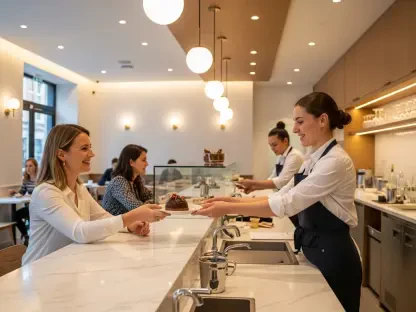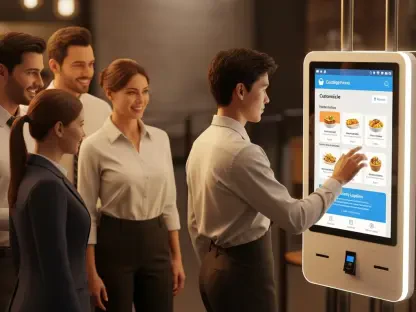Advancements in technology are transforming entire industries, including tourism and hospitality, by offering innovative solutions that enhance operations and customer experiences. As digital transformation continues to shape the landscape, hospitality businesses are adopting cutting-edge technologies to stay competitive in an increasingly tech-savvy world. The integration of artificial intelligence (AI), Internet of Things (IoT), and data analytics is enabling firms to enhance efficiency, streamline processes, and provide personalized guest experiences. These technologies are not only improving operational workflows but also elevating the quality of services offered to customers, thereby setting new benchmarks for industry standards.
Uniting Technology and Tourism
AI Revolutionizing Customer Interaction
AI’s impact on the tourism industry is profound, particularly in customer interaction, which is evolving toward more personalized and seamless experiences. Implementing AI-powered systems allows hotels and travel agencies to manage bookings, respond to inquiries, and customize services based on individual preferences, thereby enhancing guest satisfaction. AI applications extend beyond chatbots; they include sophisticated systems capable of understanding and predicting customer needs. Tourism Holdings Limited and Curiosity, a consultancy specializing in AI technology, emphasize leveraging these capabilities to streamline administrative tasks and reduce operational inefficiencies.
AI-driven data analytics further enable businesses to gather insights from extensive datasets, facilitating informed decision-making in customer service and marketing strategies. By employing these tools, firms can identify trends, optimize pricing models, and strategically position themselves to capture emerging markets. Through machine learning algorithms, tourism and hospitality enterprises can adapt to shifting consumer patterns, ultimately driving long-term growth and sustainability in the sector.
IoT Transforming Facility Management
IoT technology is becoming integral to modern facility management, transforming operations in hotels, restaurants, and other hospitality venues. By connecting devices and systems, IoT facilitates smart solutions that enhance logistical efficiency, energy management, and resource allocation. For instance, integrating IoT in hotel operations comprises smart locks, automated lighting, and climate control systems that improve energy efficiency while providing guests with customizable comfort solutions.
Moreover, IoT’s application in real-time monitoring and preventive maintenance ensures operational reliability, reducing downtime and minimizing maintenance costs. Hospitality leaders attending the Host-Tech conference at Kingpin Queenstown explore these advancements, understanding how IoT drives notable improvements in facility operations. As IoT continues to evolve, it opens new pathways for innovation, enabling businesses to deliver superior experiences while optimizing expense management and operational efficiency.
Shaping the Future of Hospitality
Leveraging Tech for Economic Diversification
Technology plays a pivotal role in the economic diversification of regions heavily reliant on tourism. Events like Queenstown’s Host-Tech conference underscore the potential for integrating tech-driven solutions into local economies, providing pathways to tech-centric careers. By showcasing innovations and facilitating discussions on the intersection of technology and tourism, these events highlight the growing importance of digital skills in the hospitality industry. Brad Rowe, the conference organizer, emphasizes the significant interest demonstrated by local industry workers, reflecting a shared enthusiasm for embracing technology to propel growth.
Education initiatives, such as AI for Business: Hospitality Edition, aim to equip businesses with the tools needed to optimize their operations efficiently. Such programs present valuable learning opportunities for small businesses, enabling them to utilize technology effectively and capitalize on digital transformation trends. Through collaborative efforts, the industry seeks to attract talent, foster innovation, and position itself as a leader in global tourism markets.
Redefining Global Customer Trends
The examination of global customer trends is integral to staying ahead in the competitive tourism landscape. Firms like FareHarbor are actively analyzing data to identify emerging preferences, guiding businesses in refining their service offerings to align with evolving demands. In a digital age where consumer expectations are rapidly shifting, recognizing these trends is crucial for crafting strategies that resonate with targeted audiences. Insights gathered from comprehensive data analytics empower hospitality companies to tailor experiences that meet individual needs.
The advent of technology facilitates these endeavors, providing tools to group large volumes of customer data into actionable insights. As businesses continue to embrace technology, they position themselves to capture and retain clientele in international markets, setting the stage for sustained growth and expansion. Through strategic adaptations, firms can refine their operational models to deliver value-driven experiences that exceed customer expectations.
Embracing a Technological Future
Technological advancements are revolutionizing industries such as tourism and hospitality, providing innovative solutions that enhance both operations and customer experiences. As digital transformation continues to reshape the landscape, hospitality businesses are embracing state-of-the-art technologies to maintain competitiveness in a world increasingly driven by tech enthusiasts. The integration of artificial intelligence (AI), Internet of Things (IoT), and data analytics equips companies with the tools to boost efficiency, refine processes, and deliver customized experiences to guests. These technologies are crucial not only for optimizing operational workflows but also for elevating the quality of services offered, setting new standards in industry expectations. By adopting these advancements, businesses can create more engaging and satisfying experiences, leading to higher customer satisfaction and loyalty. Ultimately, tech solutions are creating a more streamlined, convenient, and enjoyable experience for both providers and consumers in the hospitality realm.









